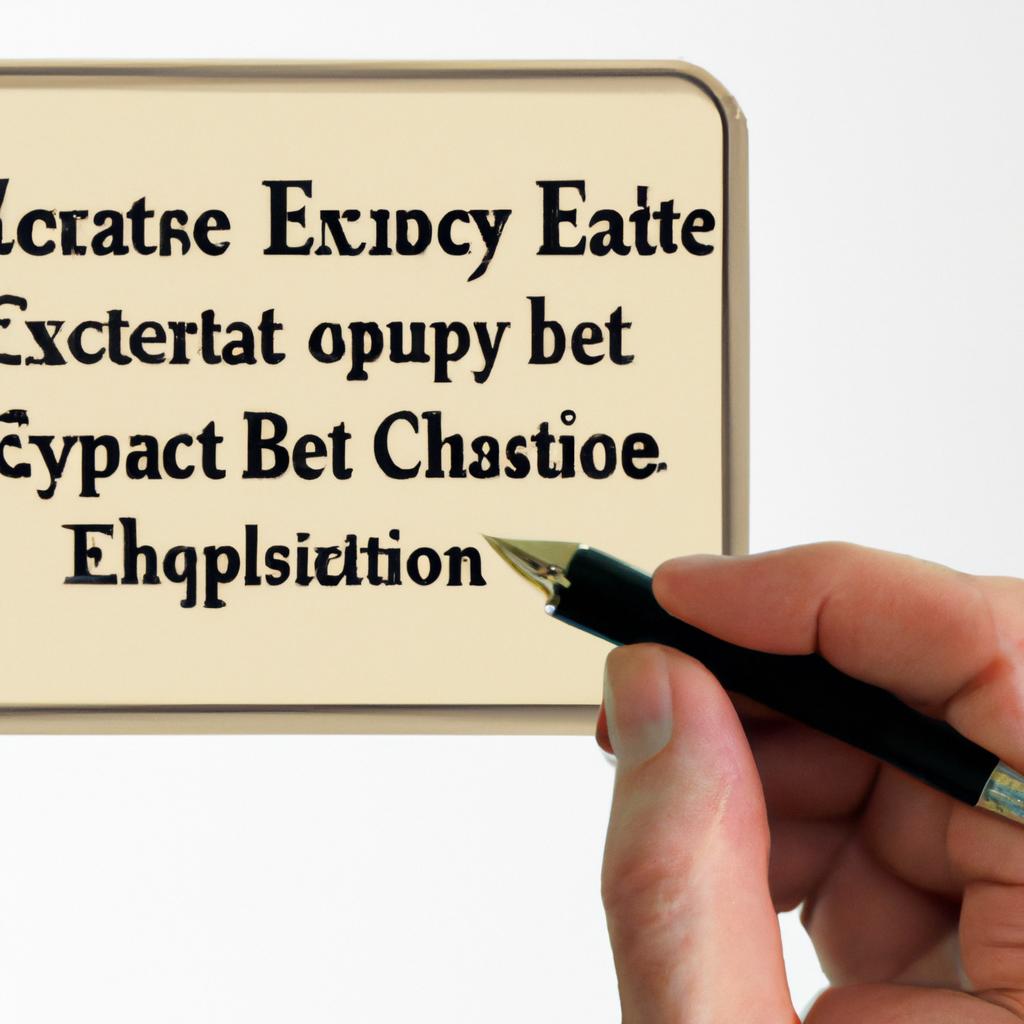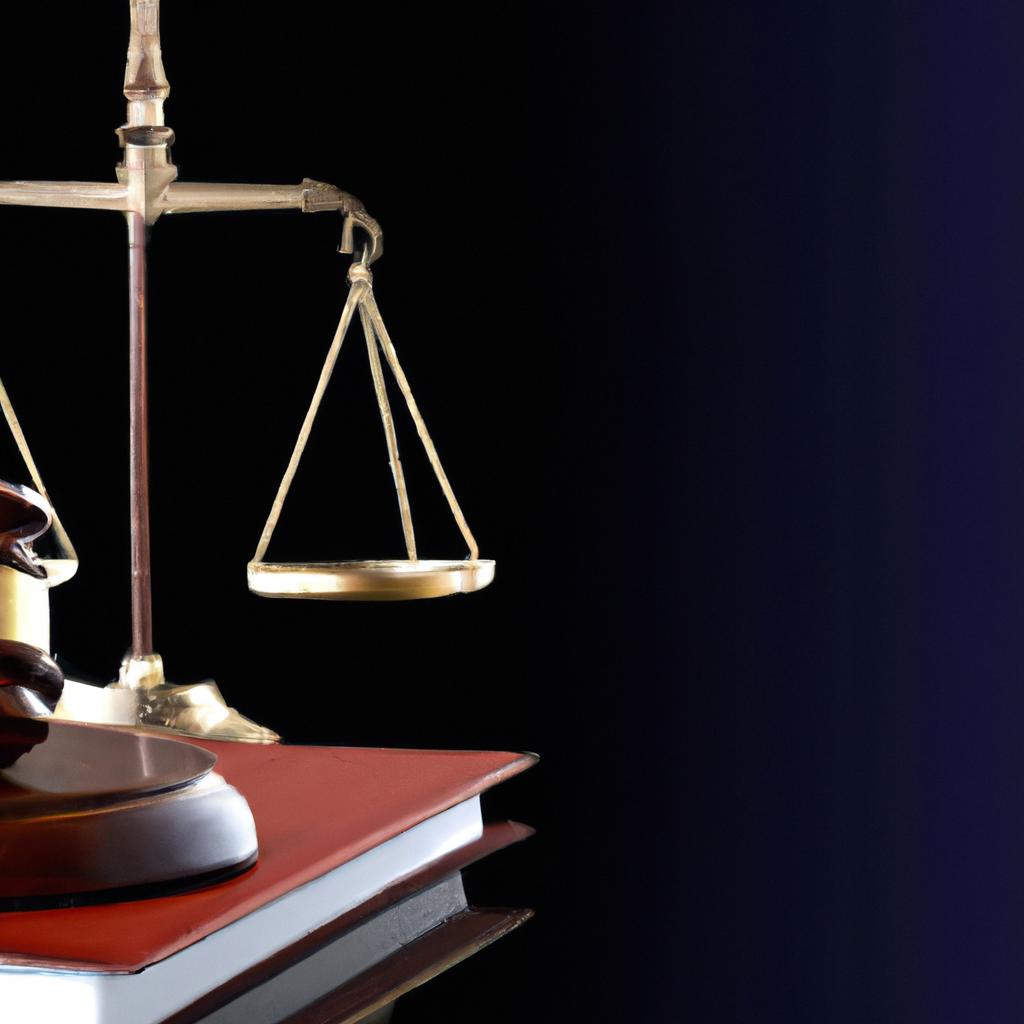As experienced attorneys at Morgan Legal Group in New York City, we are well-versed in the intricate world of estate planning and administration. One crucial aspect of this process is the appointment of an executive of the estate, a role that carries significant responsibilities and requires a keen understanding of legal intricacies. In this article, we will delve into the duties and obligations of an executive of the estate, shedding light on the vital role they play in ensuring the smooth transfer of assets and fulfillment of the deceased’s wishes.
Understanding the Role and Responsibilities of an Executive of the Estate
An executive of the estate, also known as the executor, plays a crucial role in managing the affairs of a deceased individual. This responsibility involves various tasks and duties that must be carried out with diligence and attention to detail. Some of the key responsibilities of an executive of the estate include:
- Administering the estate: The executor is responsible for managing and distributing the assets of the deceased according to their will or state laws.
- Handling finances: This involves paying off debts, taxes, and other financial obligations of the deceased using the estate’s funds.
- Communicating with beneficiaries: Keeping beneficiaries informed about the progress of the estate administration and addressing any concerns they may have.
It is essential for an executive of the estate to act ethically and in the best interests of the deceased and their beneficiaries. This role requires a thorough understanding of estate laws and procedures, as well as excellent organizational and communication skills. At Morgan Legal Group, we are committed to guiding executors through the estate administration process and ensuring that their responsibilities are fulfilled accurately and efficiently.

Key Considerations When Selecting an Executive of the Estate
One key consideration when selecting an executive of the estate is their level of trustworthiness and integrity. The individual appointed to this role will have significant responsibilities, including managing the assets of the deceased, paying debts and taxes, and distributing assets to beneficiaries. It is crucial to choose someone who is honest, reliable, and capable of handling financial matters with care.
Another important factor to consider when selecting an executive of the estate is their level of experience and expertise in estate administration. The individual chosen for this role should have a solid understanding of probate laws, tax regulations, and asset management. It may be beneficial to select someone who has previous experience serving as an executor or has a background in finance or law.

Navigating the Probate Process With the Assistance of an Executive of the Estate
When it comes to navigating the probate process, having an experienced executive of the estate by your side can make all the difference. An executive of the estate is responsible for carrying out the wishes outlined in the deceased’s Will, as well as managing the distribution of assets and settling any outstanding debts.
With the assistance of an executive of the estate, you can ensure that the probate process runs smoothly and efficiently. From filing the necessary paperwork to communicating with creditors and beneficiaries, an executive of the estate can help you navigate the complexities of probate with ease.

Tips for Ensuring a Smooth Administration of the Estate
When serving as the executor of an estate, there are several important tips to keep in mind to ensure a smooth administration process. Firstly, it is crucial to gather all relevant documents, including the deceased’s will, financial records, and any other pertinent information. Having a comprehensive understanding of the estate’s assets and liabilities will help prevent delays and complications during the administration process.
Additionally, communicating effectively with beneficiaries and heirs is essential for a successful estate administration. Keeping all parties informed of important developments, timelines, and decisions will help manage expectations and minimize disputes. It is also important to remain organized and diligent in fulfilling your fiduciary duties as the executor, including filing tax returns, paying debts and expenses, and distributing assets according to the terms of the will.
Q&A
Q: What is an executive of the estate?
A: An executive of the estate is a person who is appointed to manage the affairs of a deceased individual, including distributing assets, paying debts, and carrying out the wishes outlined in the deceased’s will.
Q: How is an executive of the estate chosen?
A: The executive of the estate is typically chosen by the deceased before their passing, in their will. If a will does not name an executive, the court may appoint someone to fulfill this role.
Q: What are the responsibilities of an executive of the estate?
A: The responsibilities of an executive of the estate include identifying and collecting the deceased’s assets, paying off any outstanding debts or taxes, and distributing the remaining assets to beneficiaries according to the terms of the will.
Q: Can an executive of the estate be held liable for any mistakes made during the administration of the estate?
A: Yes, an executive of the estate can be held liable for errors or mismanagement during the administration of the estate. It is important for the executive to act in good faith and seek legal advice when necessary to avoid any potential legal consequences.
Q: How long does it usually take to settle an estate with an executive in charge?
A: The length of time to settle an estate can vary depending on the complexity of the deceased’s assets and any potential legal disputes that may arise. In general, the process can take anywhere from several months to a few years.
Future Outlook
As we conclude our exploration of the role of the executive of the estate, it becomes clear that this position requires a unique blend of responsibility, expertise, and empathy. From managing assets to carrying out the wishes of the deceased, the executive plays a crucial role in ensuring a smooth transition of wealth and property. As we navigate the complexities of estate administration, we are reminded of the importance of careful planning and thoughtful decision-making. Remember, being an executive of the estate is not just a duty, but a privileged opportunity to honor the legacy of a loved one and provide peace of mind to those left behind.
 What is an Executive of the Estate and What Do They Do?
What is an Executive of the Estate and What Do They Do?
When a person passes away, there is a legal process that must take place to distribute their assets and settle their debts. This process is known as probate, and it involves the appointment of an executor or an executive of the estate. The executive of the estate is responsible for managing the deceased person’s assets, paying off their debts, and distributing any remaining assets to the beneficiaries. In this article, we will delve into the details of an executive of the estate and explain their role in the probate process.
Roles and Responsibilities of an Executive of the Estate
1. Managing the Deceased Person’s Assets
One of the main roles of an executive of the estate is to manage the assets of the deceased person. This includes gathering all documentation related to the person’s assets, such as bank accounts, real estate, investments, and other valuables. The executive must also secure and safeguard the assets to prevent any loss or damage.
2. Identifying and Paying Off Debts
Another important responsibility of an executive is to identify and pay off any debts left behind by the deceased person. This can include outstanding bills, loans, mortgages, and taxes. The executive must review the deceased person’s financial records and notify any creditors of the person’s passing. They are also responsible for negotiating and settling any outstanding debts on behalf of the estate.
3. Distributing Assets to Beneficiaries
Once all debts have been paid, the executive can then distribute the remaining assets to the beneficiaries according to the instructions outlined in the deceased person’s will. If there is no will, the state’s laws of intestacy will determine who receives the assets. The executive must ensure that the distribution of assets is carried out in a fair and timely manner.
4. Communicating with Beneficiaries
The executive is responsible for informing the beneficiaries of their rights and obligations, as well as keeping them updated on the progress of the probate process. They must also address any concerns or disputes that may arise between beneficiaries or creditors. Good communication skills are essential for an executive in handling these matters effectively.
5. Preparing and Filing Legal Documents
The probate process involves vast amounts of paperwork, including legal documents that need to be filed with the court. The executive is responsible for preparing and filing these documents accurately and on time. This includes the initial application for probate, inventory of assets, and final distribution reports.
Benefits of Hiring an Executive of the Estate
1. Legal Expertise
Properly managing an estate during probate requires an understanding of both legal and financial matters. By hiring an executive of the estate, you can benefit from their expert knowledge and guidance in navigating the complicated probate process.
2. Time-Saving
The probate process can be time-consuming, and without the right expertise, it can take even longer. By hiring an executive of the estate, you can save valuable time and effort in handling the complex legal and financial matters involved in probate.
3. Minimizes Conflict
In some cases, the probate process can lead to disputes between beneficiaries or creditors. An experienced executive of the estate can help minimize these conflicts by handling communication and negotiations with all parties involved.
Tips for Choosing an Executive of the Estate
1. Consider their Experience
When choosing an executive of the estate, it is crucial to consider their experience in managing probate cases and dealing with a variety of assets and debts. Look for someone with a track record of successful cases that are similar to yours.
2. Communication Skills
As mentioned earlier, good communication skills are essential for an executive when handling beneficiaries and creditors. Choose someone who can effectively communicate and keep all parties informed throughout the process.
3. Availability
The probate process can be time-sensitive, and it is essential to have an executive who is available and responsive to any urgent matters that may arise. Ensure that the person you choose can commit the time and effort needed to manage the estate efficiently.
Real-Life Example: The Case of George Washington’s Estate
George Washington’s estate serves as a prime example of the importance of having an executive of the estate. As a successful farmer, landowner, and president of the United States, Washington had a substantial estate, which included his home, plantation, and enslaved individuals.
When Washington passed away in 1799, his wife Martha was appointed as the sole executor of his estate. However, due to her advanced age and declining health, she appointed her grandson, George Washington Parke Custis, as her co-executor.
Together, they successfully managed Washington’s estate and preserved his legacy. Martha and Custis organized Washington’s extensive financial records, paid off his debts, and distributed his assets, including his iconic Mount Vernon plantation, to his beneficiaries.
In Conclusion
The role of an executive of the estate is crucial in the probate process. They are responsible for managing and distributing the deceased person’s assets, paying off their debts, and ensuring a smooth and efficient probate process for all parties involved. Hiring an experienced and knowledgeable executive of the estate can help minimize conflict and save time and effort during this challenging time. We hope this article has provided valuable insights into the role of an executive of the estate and the importance of having one during probate.

